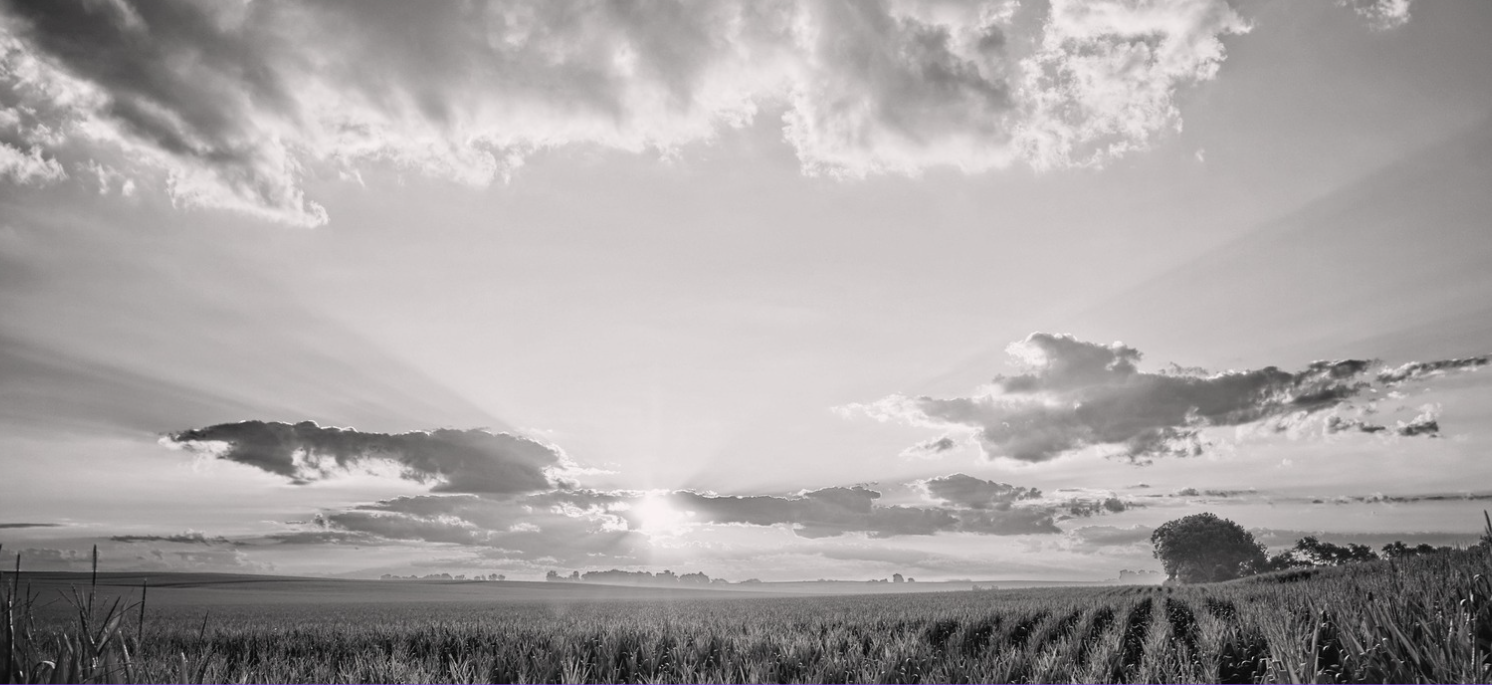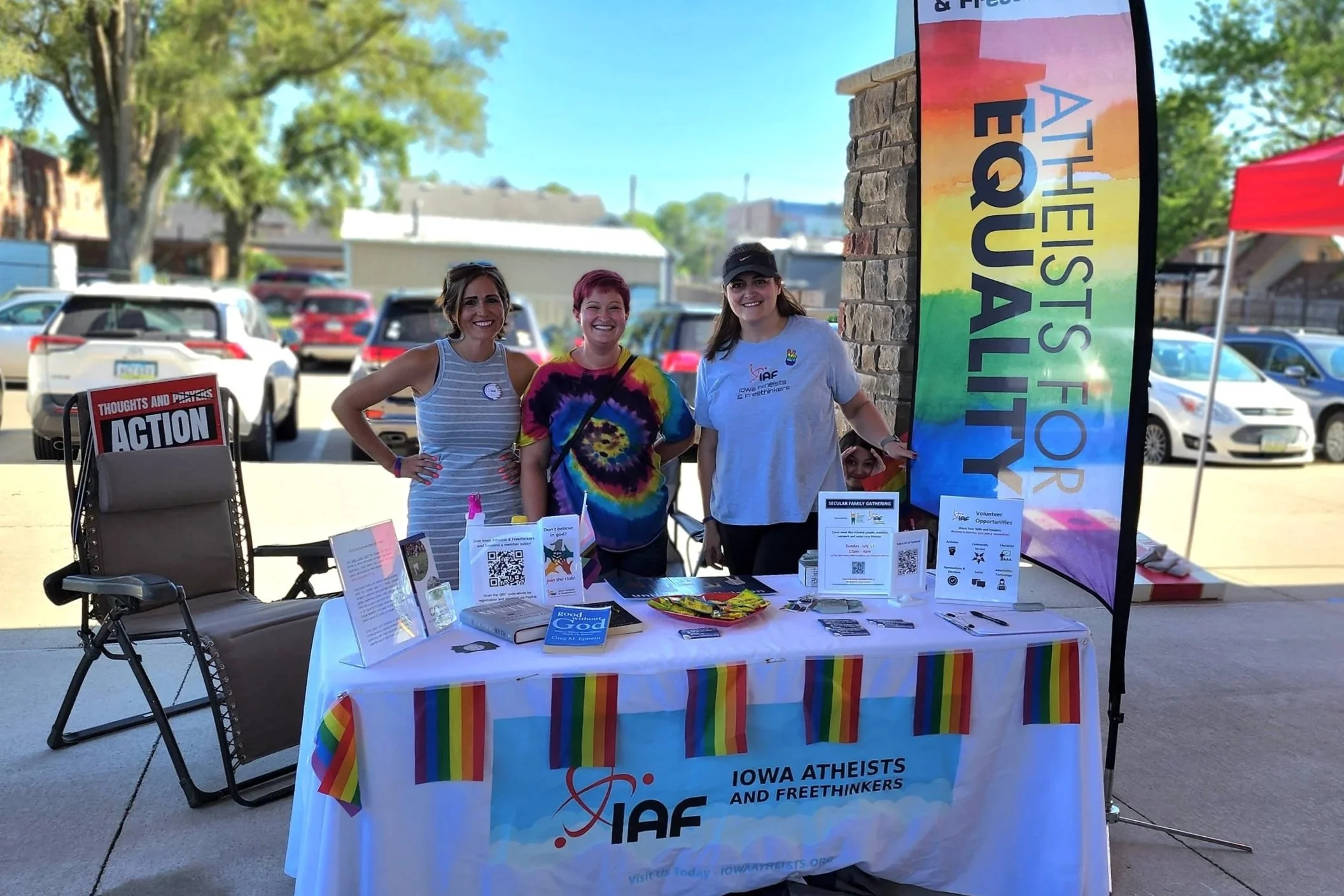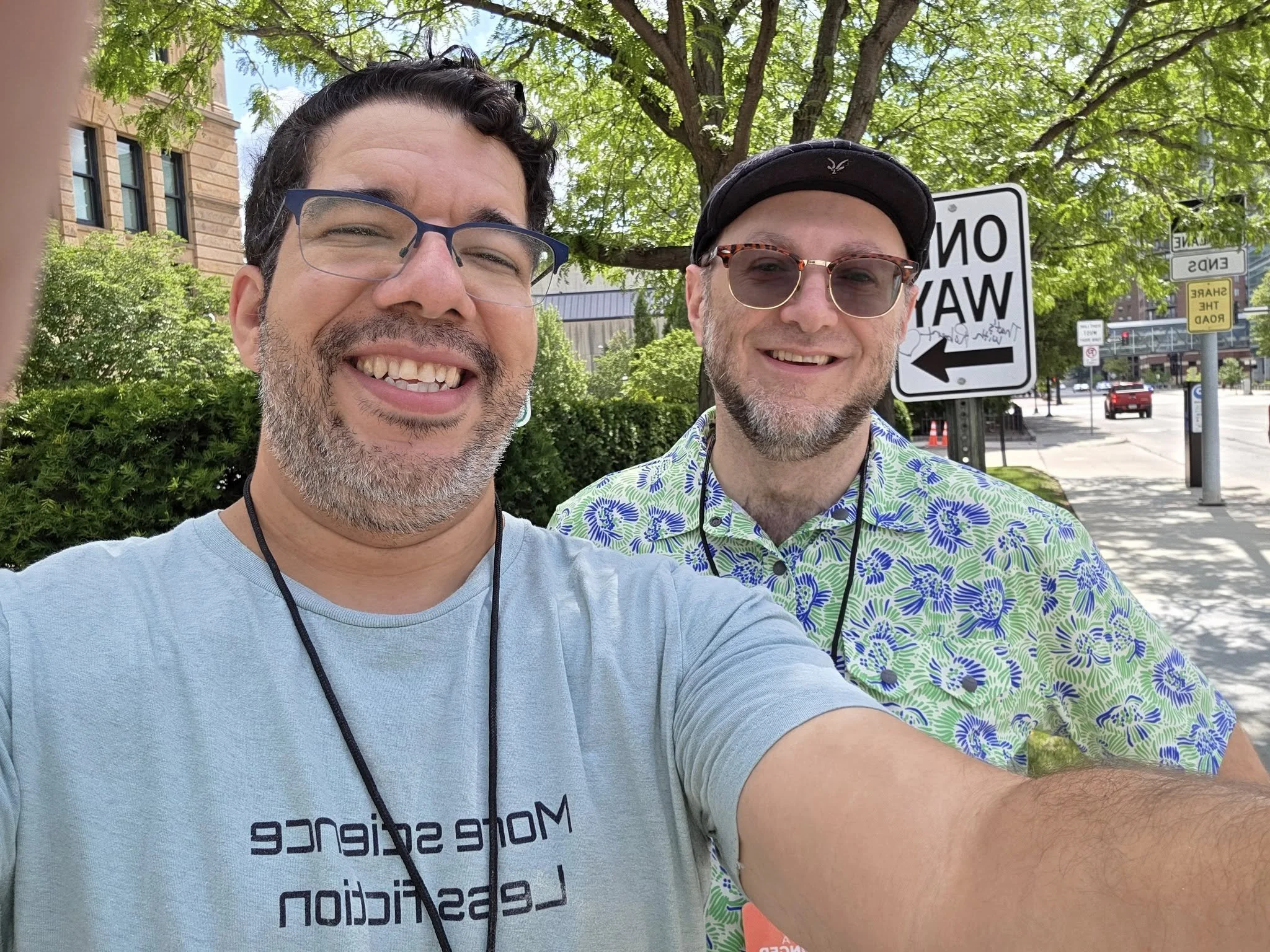
A place for the non-religious to call home.
Iowa Atheists & Freethinkers is a diverse and inclusive community of agnostics, atheists, freethinkers, humanists, and non-theists of all types
Standing Against Discrimination
Building a community where everyone belongs.
Supporting Secular Government
Protecting democracy through secular values.
Celebrating Humanity
Human potential is worth celebrating
Here to do GOOD without GOD.
Science & Reason
Science powers Iowa’s health, food, safety, and economy—but too often, research is defunded, climate risks are downplayed, and evolution is attacked for ideological reasons. Iowa Atheists & Freethinkers defends evidence-based policy and free inquiry because a resilient, fair society depends on them. We’re growing statewide with events, education, and advocacy—while tracking legislation at the Capitol. Join us to keep science and reason at the heart of Iowa’s future.
Support IAF
Help Us Build a Secular Iowa
IAF thrives because of community support. From picnics and guest speakers to scholarships and awareness campaigns, your contributions make it possible to defend equality, celebrate diversity, and build a secular community in Iowa. Here’s how you can help
Become a Member
Join as a contributing member and help keep IAF a home for the non-religious in Iowa. Membership ensures ongoing events, outreach, and advocacy.
Give a One Time Gift
Prefer to give in one go? Make a lump-sum donation through PayPal, by check, or by arranging a transfer of assets. Every contribution is tax-deductible.
Set up a small monthly gift (starting at $10) through PayPal or directly from your checking account. Even modest recurring donations build long-term stability for our work.
Make a Recurring Donation
Your support keeps secular voices strong in Iowa. Become a member, set up a small monthly donation, or give a one time gift today. Together, we can build community, fight for equality, and protect church state separation.
Other Ways to Give
Books & Media
Donate books, music, or DVDs to our member Lending Library.
Estate Giving
Include IAF in your estate planning through cash, securities, or annuities. Consult with your advisor.
Events & Volunteering
Support IAF by showing up and helping at events.




